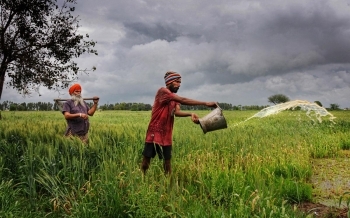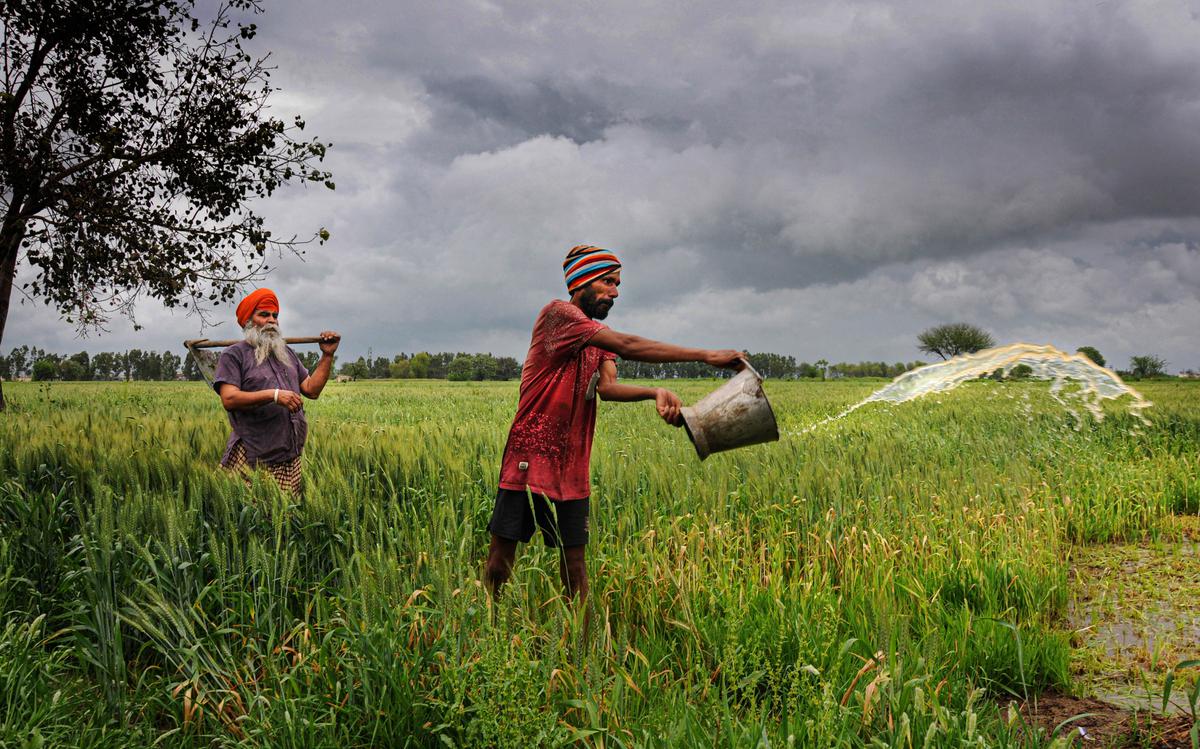
.png) Dr Suresh Mathew
Dr Suresh Mathew

The signals of a looming food crisis came from the government itself. At a recent global meeting the Prime Minister showcased India’s magnanimity and readiness ‘to feed the world’ by exporting grains to solve the food crisis. Several countries might have heaved a sigh of relief after this sweeping statement as the world was faced with a declining supply of wheat and other items due to Russia-Ukraine war. But soon came the twist. Within a few days, the government took a U-turn by declaring a ban on wheat exports. It was clear that the decision was taken “to manage” the food crisis and food price inflation in the country.
The visionary leaders of the country, whom the present regime looks at with derision, through the now-defunct Planning Commission and Five-year Plans had made the country self-reliant on food supply. The programmes like Green, Yellow and White Revolutions were the backbone of making India ‘aatma nirbhar’ in food items. Green revolution led to tremendous increase in the production of food grains especially wheat and rice. Yellow revolution focused on increasing the production of edible oil to achieve self-reliance. White revolution marked the transition of the country to self-sufficiency in milk and milk products. It was the foresight of such visionaries and their leadership that helped the country survive the world food crisis that hit in 2007-08. When country after country witnessed food riots, India escaped it because its farm sector was not mortgaged to corporate market-driven system.
The situation has drastically changed. Food price inflation has doubled from 3.94 per cent in March 2021 to 8.04 per cent in March 2022. This has a telling impact on the overall retail inflation reaching 7.9 per cent and the wholesale inflation around 15 per cent, a record of sorts in the recent past. The situation is predicted to get worse globally with Russia-Ukraine war prolonging and due to the adverse impact of climate change. The severity of the domestic crisis will depend on how much we are pushed to rely on import of food supply. The present predicament is apparently the result of deprioritizing the agricultural sector and the farmers’ problems. Experts say that India was nearly self-sufficient by achieving 97 per cent edible oil target through Yellow Revolution but down the line the governments changed the policies removing import duties and did not encourage oilseed farmers.
The vehement protests against the controversial farm laws were the result of the farmers’ ire against a government hell bent on leaving the country’s agricultural sector at the mercy of the corporate sector. The only motive of the corporate houses is profiteering. The backbone of the country, especially the rural areas, cannot be left to the whims and fancies of those out to make a quick buck. The crisis in the food supply is sure to hit the public distribution system; it has resulted in the food price inflation with its cascading impact on the overall inflationary situation in the country. The government seems to have forgotten the ‘Jai Kisan’ slogan of the Congress government headed by Lal Bahadur Shastri. Unless the focus of the government shifts back to the agricultural sector, we might see a situation witnessed in many countries in previous decades.